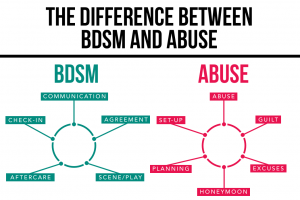I talk A LOT about boundaries.
I’m a HUGE fan, and I think boundaries are sexy AF. Not just my own, but someone else having a good set of boundaries as well.
There is nothing I love more than someone who models good boundaries. Because I know that they are far more likely to understand my boundaries, since they have carefully constructed and maintain their own.
But what ARE boundaries?
I get asked that a lot.
What are boundaries? What if I don’t know what my boundaries are? How do I set boundaries?
I get so many questions that I’ve actually started a book about boundaries. Because they are THAT important.
But I also thought that as I wrote that book, I’d share with you some of my thoughts about boundaries.
There are six primary types of boundaries:
- Physical Boundaries
- Intellectual Boundaries
- Emotional Boundaries
- Sexual Boundaries
- Material Boundaries
- Time Boundaries
Today, I’m going to focus on one, Material Boundaries: Money and Possessions.
I’m starting with that one in this series, because I get a lot of people on my dating site talking about financial domination, FinDommes (and FinDoms), Sugar Daddy/Baby arrangements and more.
And a lot of people really don’t understand how to navigate these waters.
Many don’t want to—which is 100% OK. I’m not into financial power exchange, myself.
However, since finances are also at the heart of many relationship issues, this is a good boundary to truly understand and maintain for yourself.
Healthy material boundaries: Choosing your limits on what you will share or give with and to whom.
Ask yourself these questions:
- What material things are important to you?
- Under what circumstances are you willing to loan money (like to a friend or family member, but not to a stranger at a bar)?
- Is it important that you feel like equal money or material goods are offered in your relationship ($1 for $1), or is it more about equitable arrangements (based on who has more or less)?
- If someone borrows something, how do you expect to get it back? Better than before (like a full tank of gas in a car), with a gift, or just as-is?
- If someone breaks one of your possessions, what do you expect to happen? An apology? Offer of payment? Replacement of the item?
- Are you frugal, do you use a budget? Or are you a spendthrift? Does your partner need to be the same?
- Are you willing to pay for services? Like house cleaning, therapy, dog walking, or domination, perhaps even sexual services.
- Do you like someone controlling your finances for you in any way? Think financial domination, budgeting, investing.
- Do you keep tabs on money spent on others? Or do you figure “It’ll all work out in the end”?
- When you are in a relationship, do you prefer to merge finances or keep them separate? Or maybe share finances for bills and living, and maintain separate accounts for fun?
- What does money represent to you? For example, to some, money is used to woo people instead of putting in effort in the form of romance, time and people skills. This is often a “Sugar” arrangement. Money stands in for other relationship expectations and skills. For others, money is power, and the person with the money is the one who calls the shots.
- Who pays on dates?
- Is one of your love languages “gifts,” and are you comfortable with a partner who has that love language? (Note: “gifts” need not be expensive, or even cost money—but that’s another discussion to have.)
- If one of your partners makes WAY more than you do, do your expectations change?
- What if they make way less?
And if you are nonmonogamous:
- How do you feel about your materials being shared with more than one partner? What about your metas (partners’ partners)?
- What, if anything is sacrosanct? (Like your bed for you and one other, for example.)
- If you share finances with a partner, how are you (each) expected to use money with/for/on others?
- Do any of your partners contribute to household expenses?
- If there are group vacations, how are the expenses split? By the person, or by who makes how much?
Of course, there are more questions you could ask. Perhaps you’ve thought of a few, and would like to share?
These are a place to start with yourself, and with others in conversation or negotiation as you build relationships.








